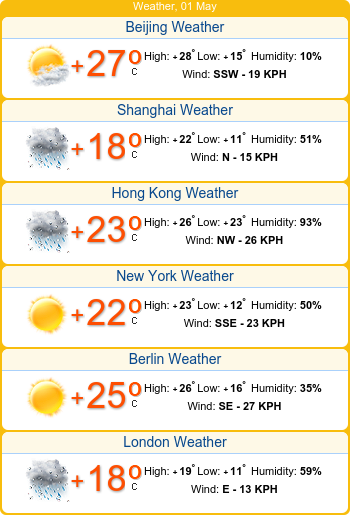HSBC: right idea, wrong time for an Asian divorce
Thirty years of being headquartered in London is proving to be very disorienting for HSBC Holdings Plc. Posterity will question the wisdom of the behemoth’s 1993 decision to move its headquarters from Hong Kong to the UK. Anyone who couldn’t see then that Asia would be the bank’s true profit center decades later — it generated 78% of pre-tax profit in 2022 — wasn’t paying attention. But today’s tussle between HSBC and Shenzhen-based Ping An Insurance — its biggest shareholder — raises a question everyone knew was coming: whether HSBC is an Asian bank or a global one. Ping An is pressuring HSBC CEO Noel Quinn to admit it’s the former and create a separately listed Asian business headquartered in Hong Kong. Michael Huang, CEO of Ping An, says it’s the clearest way to fix what he views as HSBC’s lack of competitiveness. And, as Huang puts it, to “crystallize multiple benefits” from a “strategic restructuring” that better reflects Asia’s contributions to the bank’s bottom line. Odds are, however, Huang will be disappointed. A shareholders meeting in Birmingham seems likely to side with Quinn, who has time on his side. And a recent dose of healthy financial results is sure to dampen calls for radical change. Thing is, Huang isn’t exactly wrong. With its 8.3% stake in HSBC, Ping An is well within its rights to agitate for change. There’s certainly an argument that management has “drained HSBC Asia of dividends and growth capital” to smooth out underperformance elsewhere. Indeed, dramas abroad appear to be preoccupying HSBC’s top management in London. HSBC’s interests in France, for example, have gone awry. Hopes to sell that unit back in 2021 appear to be going nowhere. Huang probably looks askance at the time and energy spent on the purchase of Silicon Valley Bank’s UK operation in March. Quinn’s team called it a win for HSBC’s global growth strategy. To Huang and his fellow detractors, the SVB deal is yet another distraction from the real game in Asia. Still, Quinn’s argument to stay the course got a big boost from a barnburner of a first-quarter report. HSBC CEO Noel Quinn has money and time on his side. Image: YouTube / Screengrab Earlier this week, shareholders learned HSBC generated a 19.3% annualized return on tangible equity. It was a performance in league with Singapore giant DBS Bank and in a different stratosphere than the single-digit gains normally experienced by HSBC shareholders. Jefferies analyst Joseph Dickerson notes that the quarter was characterized by “strong capital generation. Revenue showed strength notably in non-interest income.” Hence Huang’s “timing” problem. Quinn’s team can argue its restructuring strategy is working. Why risk changing course now? Already, HSBC brass can counter, the bank has pivoted away from low-yielding businesses in Canada and parts of Europe. And that, for all Ping An’s griping, the bank is indeed gravitating more and toward prioritizing Asia. All this helps explain why advisory group Institutional Shareholder Services wants investors to vote down Ping An’s proposals. ISS told Reuters that Ping An’s strategy “lacks detailed rationale.” Advisory firm Glass Lewis recommends the same: “We do not believe that realizing improvements in returns and value necessitates a breakup or spinoff of HSBC’s Asian business at this time.” As Quinn told Bloomberg this week: “We have said all along that we believed the fastest and safest way to get increased valuation, increased profit, increased dividends, is by focusing on the current strategy. These results show that the strategy is working.” Another reason the time might not be right is the intensifying banking crises that have global markets in near-panic mode. In the US, the collapses of SVB and Signature Bank made headlines anew this week as First Republic Bank hit a wall. After being seized by regulators, California-based First Republic was sold to JPMorgan Chase. The news triggered investors’ PTSD over UBS having to save Credit Suisse from the financial abyss. As such, Huang’s odds of convincing other top HSBC shareholders that now is the time for a risky breakup of a US$150 billion lender — one that regulators on a few continents would want to micromanage — are falling by the day. There’s also the danger of the biggest HSBC shareholder essentially yelling “fire!” in a traumatized financial theater. SVB’s downfall, remember, was precipitated in part by tech billionaires ragging on its management over social media. Many believe, likewise, that intemperate comments from Saudi National Bank pushed Credit Suisse over the edge. Silicon Valley Bank’s collapse has raised contagion concerns. Image: Screengrab / Twitter / TechCrunch In such a fragile environment, Huang’s Ping An doesn’t seem to be reading the room. There’s no doubt that Chinese leader Xi Jinping would be thrilled to see HSBC heed Huang’s demands. Having a truly pan-Asian giant headquartere

Thirty years of being headquartered in London is proving to be very disorienting for HSBC Holdings Plc.
Posterity will question the wisdom of the behemoth’s 1993 decision to move its headquarters from Hong Kong to the UK. Anyone who couldn’t see then that Asia would be the bank’s true profit center decades later — it generated 78% of pre-tax profit in 2022 — wasn’t paying attention.
But today’s tussle between HSBC and Shenzhen-based Ping An Insurance — its biggest shareholder — raises a question everyone knew was coming: whether HSBC is an Asian bank or a global one.
Ping An is pressuring HSBC CEO Noel Quinn to admit it’s the former and create a separately listed Asian business headquartered in Hong Kong.
Michael Huang, CEO of Ping An, says it’s the clearest way to fix what he views as HSBC’s lack of competitiveness. And, as Huang puts it, to “crystallize multiple benefits” from a “strategic restructuring” that better reflects Asia’s contributions to the bank’s bottom line.
Odds are, however, Huang will be disappointed. A shareholders meeting in Birmingham seems likely to side with Quinn, who has time on his side. And a recent dose of healthy financial results is sure to dampen calls for radical change.
Thing is, Huang isn’t exactly wrong. With its 8.3% stake in HSBC, Ping An is well within its rights to agitate for change. There’s certainly an argument that management has “drained HSBC Asia of dividends and growth capital” to smooth out underperformance elsewhere.
Indeed, dramas abroad appear to be preoccupying HSBC’s top management in London. HSBC’s interests in France, for example, have gone awry. Hopes to sell that unit back in 2021 appear to be going nowhere.
Huang probably looks askance at the time and energy spent on the purchase of Silicon Valley Bank’s UK operation in March. Quinn’s team called it a win for HSBC’s global growth strategy. To Huang and his fellow detractors, the SVB deal is yet another distraction from the real game in Asia.
Still, Quinn’s argument to stay the course got a big boost from a barnburner of a first-quarter report.

Earlier this week, shareholders learned HSBC generated a 19.3% annualized return on tangible equity. It was a performance in league with Singapore giant DBS Bank and in a different stratosphere than the single-digit gains normally experienced by HSBC shareholders.
Jefferies analyst Joseph Dickerson notes that the quarter was characterized by “strong capital generation. Revenue showed strength notably in non-interest income.”
Hence Huang’s “timing” problem. Quinn’s team can argue its restructuring strategy is working. Why risk changing course now?
Already, HSBC brass can counter, the bank has pivoted away from low-yielding businesses in Canada and parts of Europe. And that, for all Ping An’s griping, the bank is indeed gravitating more and toward prioritizing Asia.
All this helps explain why advisory group Institutional Shareholder Services wants investors to vote down Ping An’s proposals. ISS told Reuters that Ping An’s strategy “lacks detailed rationale.”
Advisory firm Glass Lewis recommends the same: “We do not believe that realizing improvements in returns and value necessitates a breakup or spinoff of HSBC’s Asian business at this time.”
As Quinn told Bloomberg this week: “We have said all along that we believed the fastest and safest way to get increased valuation, increased profit, increased dividends, is by focusing on the current strategy. These results show that the strategy is working.”
Another reason the time might not be right is the intensifying banking crises that have global markets in near-panic mode. In the US, the collapses of SVB and Signature Bank made headlines anew this week as First Republic Bank hit a wall.
After being seized by regulators, California-based First Republic was sold to JPMorgan Chase. The news triggered investors’ PTSD over UBS having to save Credit Suisse from the financial abyss.
As such, Huang’s odds of convincing other top HSBC shareholders that now is the time for a risky breakup of a US$150 billion lender — one that regulators on a few continents would want to micromanage — are falling by the day.
There’s also the danger of the biggest HSBC shareholder essentially yelling “fire!” in a traumatized financial theater. SVB’s downfall, remember, was precipitated in part by tech billionaires ragging on its management over social media. Many believe, likewise, that intemperate comments from Saudi National Bank pushed Credit Suisse over the edge.

In such a fragile environment, Huang’s Ping An doesn’t seem to be reading the room. There’s no doubt that Chinese leader Xi Jinping would be thrilled to see HSBC heed Huang’s demands. Having a truly pan-Asian giant headquartered in Hong Kong would be a boon for a city watching its banking jobs pivot to Singapore.
Though Huang is speaking for Ping An, this financial cold war of sorts, the extent to which things have broken down entirely between him and HSBC, may fan concerns over China’s increasing hold over Hong Kong and its future status as a global financial center.
It’s intriguing to view this standoff as a microcosm of the East-West divide upending the global economy. More than arguably any other banking giant, HSBC finds itself squeezed between two great powers – China and the US –wielding financial leverage wherever they can find it.
For HSBC, it hardly helps that it relies on the US dollar to clear trades at a moment when Beijing is working to internationalize the yuan. After all, HSBC’s ability to access deals in Hong Kong and China — and rack up massive profits — comes at the pleasure of Xi’s Communist Party.
The outsized role that China’s growth played in the $13.7 billion pre-tax profit HSBC reported in the first quarter makes this a delicate dance.
In February, lawmakers from Britain’s All-Party Parliamentary Group accused HSBC and Standard Chartered Bank of being “complicit” in China’s “gross human rights abuses of Hongkongers.” At issue: barring customers’ access to their pensions after they fled the city amid anti-mainland China protests in recent years.
“These banks cannot continue to act with impunity, and the UK government must act to assist those… who are suffering from the impact of these anti-democratic laws,” says Alistair Carmichael, co-chair of the APPG for Hong Kong.
In a statement, HSBC retorts that the bank has “an enduring commitment to Hong Kong, its people and communities. It is where we were founded nearly 160 years ago. Like all banks, we have to obey the law, and the instructions of the regulators, in every region in which we operate.”
Yet Ping An’s real problem is that it hasn’t pulled enough HSBC shareholders its way. Here, activist shareholder Ken Lui is proving to be an ally.
He recently submitted a resolution calling on HSBC to plot ways to restructure its Asia business. Lui seeks “structural reforms including but not limited to spinning off, strategic reorganization and restructuring” of HSBC’s Asia unit.

Of course, Huang’s company has other options for betting on giant lenders focused specifically on Asia. Selling its HSBC stake is always an option. After all, it hardly seems that Quinn’s inner circle – or that of chairman Mark Tucker – is about to announce a giant U-turn in strategy.
Quinn’s office claims it’s already stress-tested what Ping An is requesting and argues Huang’s ideas would do more to reduce than boost shareholder value. Goldman Sachs has reportedly made similar arguments.
Though Huang is not wrong that HSBC should be more present in Asia, physically, the recalibration he seeks at a moment of fragility in the global banking system seems a non-starter.
Huang might have better luck getting shareholders to prod HSBC to restore dividends. For Quinn’s team, that might be the easier way to defuse this shareholder cold war.
Follow William Pesek on Twitter at @WilliamPesek












